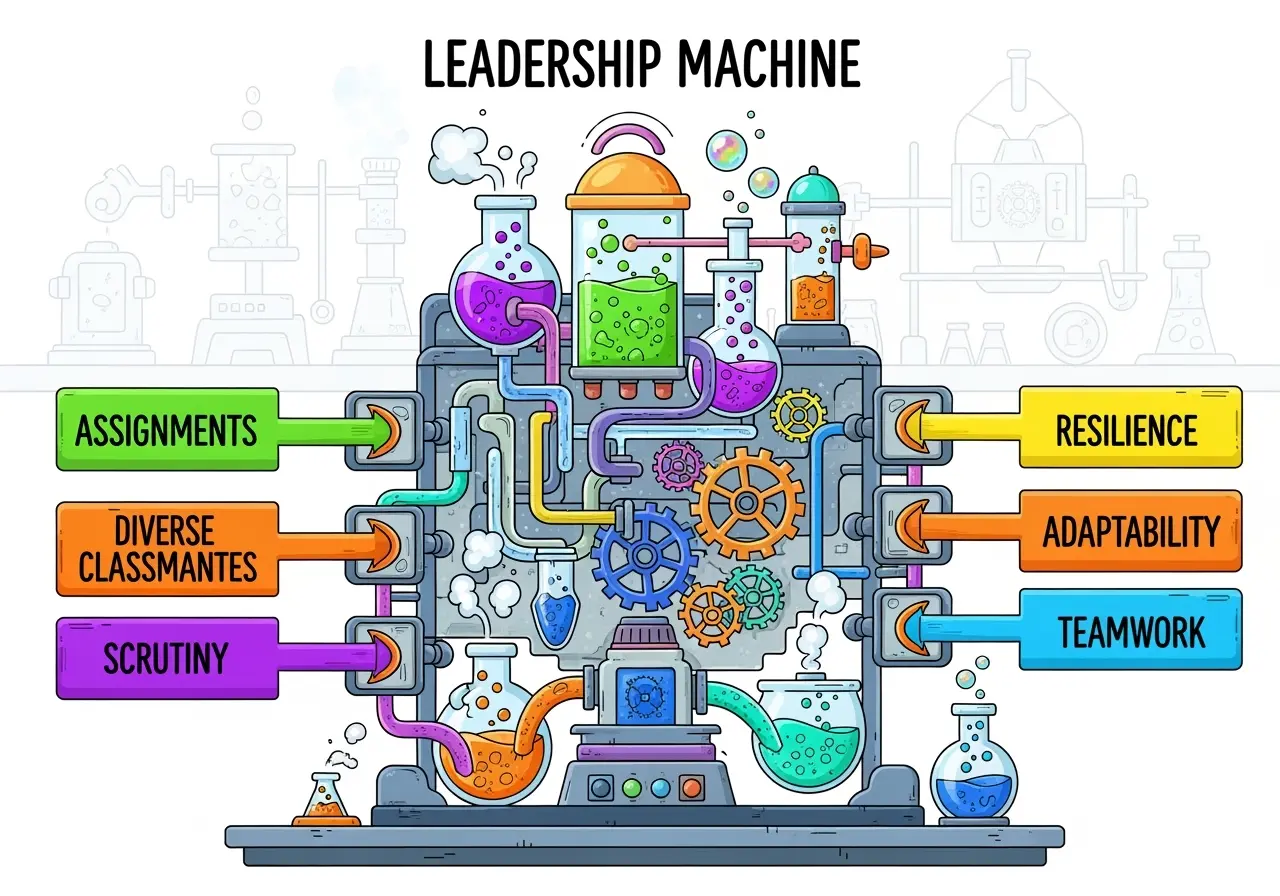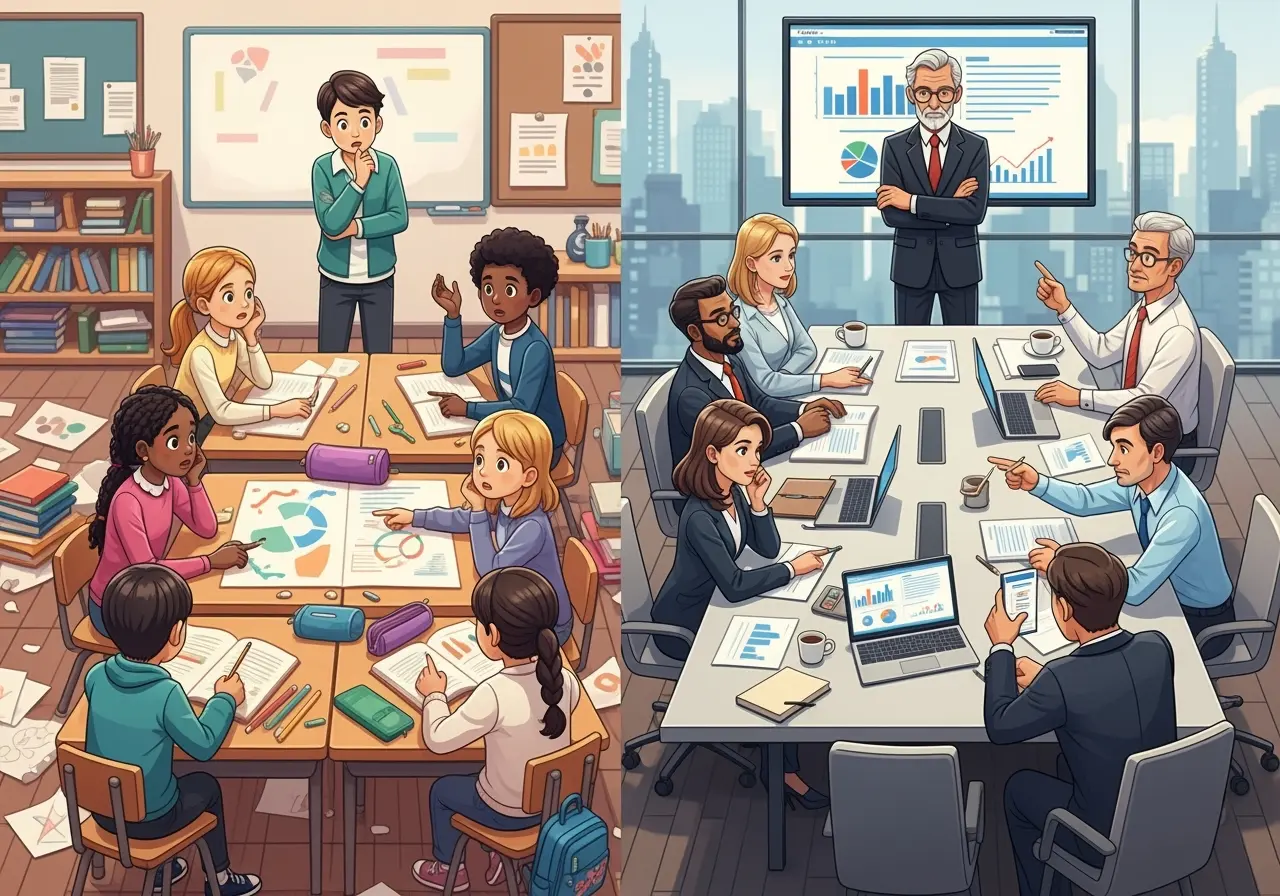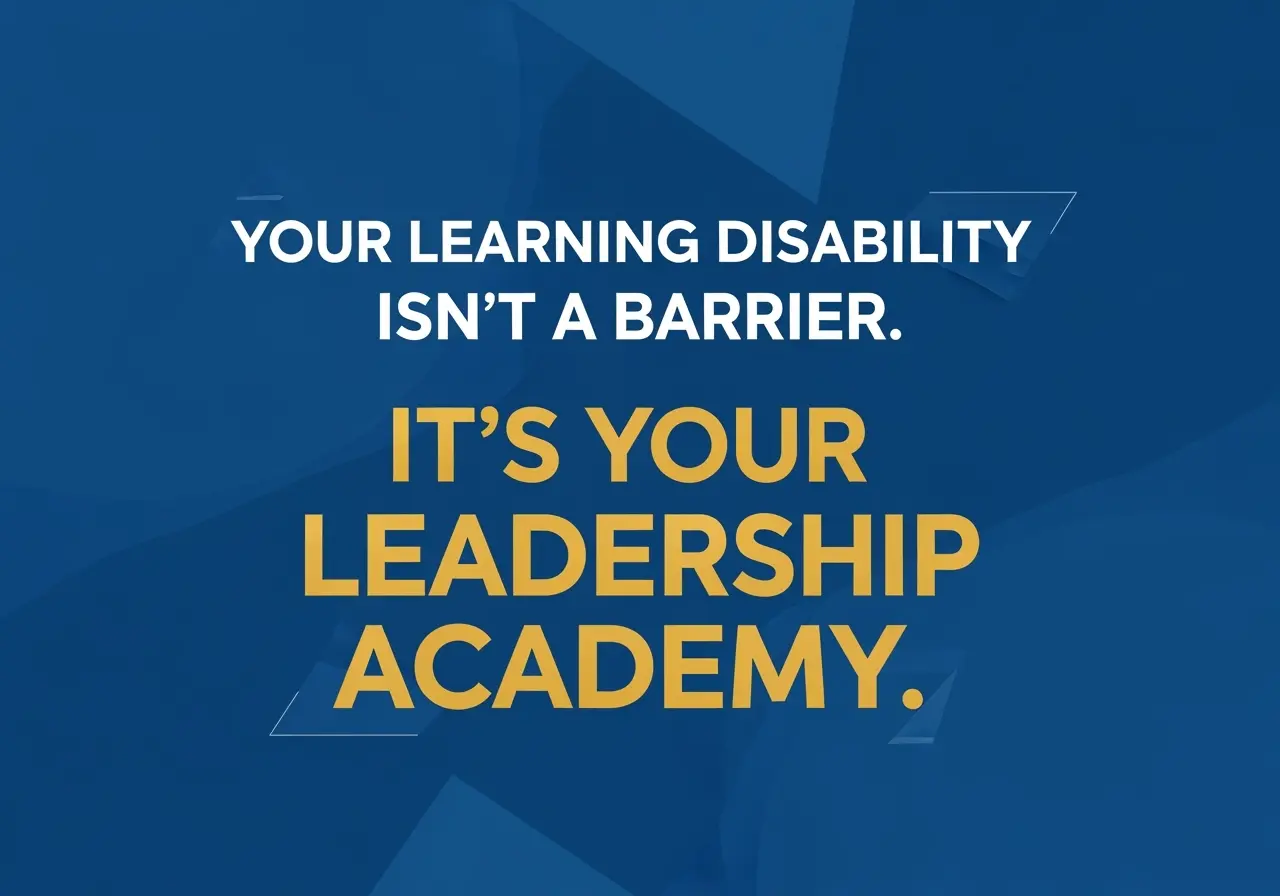The Unlikely Leadership Pipeline
Most leadership development programs focus on MBA curricula, executive coaching, and corporate training. But there's another leadership academy that produces some of the most capable crisis managers and adaptive leaders in business—and it starts in elementary school special education classrooms.
I should know. I went from struggling to read a first-grade book to running a 117-year-old company as CEO, with military leadership experience as a Master Sergeant in between. The skills that make me effective in both roles? They were forged in those early years when every day felt like a crisis to manage.
Here's what traditional leadership training doesn't teach you—but learning disabilities do.
Crisis Management: When Every Day is Practice
Traditional leaders learn crisis management in boardrooms. Dyslexic leaders learn it in first grade.
When you have a learning disability, every classroom situation is potential crisis management:
- The teacher calls on you to read aloud (Crisis: How do I handle this without embarrassing myself?)
- There's a timed test (Crisis: How do I work within constraints that don't fit my processing style?)
- Group work requires reading instructions quickly (Crisis: How do I contribute without revealing my struggle?)
By age eight, I had already developed crisis management skills that some executives never master:
Rapid Assessment: Instantly evaluating what resources are available and what accommodations I can request or create.
Alternative Planning: Always having Plan B, C, and D ready because Plan A rarely worked for my brain.
Calm Under Pressure: When reading a simple sentence feels overwhelming, business pressure becomes manageable by comparison.
Resource Mobilization: Learning to quickly identify who can help and how to ask for support effectively.

The Special Ed Leadership Laboratory
Special education isn't just remedial learning—it's advanced leadership training in disguise. Here's what that classroom taught me about running a business:
Adaptive Problem-Solving
Every assignment required me to find a different path to the same destination. In business, this translates to:
- Finding creative solutions when traditional approaches fail
- Seeing opportunities others miss because I'm used to looking for alternative routes
- Pivoting quickly when market conditions change
Team Collaboration with Diverse Strengths
Special ed classrooms are masterclasses in working with people who have different abilities and processing styles. As CEO, this means:
- Recognizing each team member's unique strengths and communication styles
- Creating systems that work for different types of thinkers
- Building inclusive environments where everyone can contribute their best work
Resilience Under Scrutiny
Having teachers question whether you belong in advanced classes builds thick skin and unshakeable self-confidence. In leadership, this becomes:
- Making tough decisions without being paralyzed by criticism
- Standing firm on strategic vision even when others doubt
- Maintaining confidence during challenging business cycles

The Crisis Leadership Advantage
When COVID-19 hit and businesses were scrambling to adapt, I realized something: This felt familiar. The rapid pivoting, the need to find new ways to operate, the pressure to keep everyone moving forward despite uncertainty—I'd been training for this my entire life.
Leaders with learning disabilities have several crisis management advantages:
Pattern Recognition Under Pressure
My dyslexic brain learned early to spot patterns and connections that aren't immediately obvious. In crisis situations, this means:
- Identifying emerging problems before they become critical
- Seeing connections between seemingly unrelated business challenges
- Recognizing when small issues signal larger systemic problems
Comfort with Uncertainty
When you never know if you'll be able to read the next word correctly, you develop comfort with uncertainty that serves you well in volatile business environments:
- Making decisions with incomplete information
- Moving forward despite ambiguous circumstances
- Maintaining team confidence even when outcomes aren't guaranteed
Resource Optimization
Years of finding creative ways to learn with limited tools translates directly to business resource management:
- Maximizing results with constrained budgets
- Finding unconventional solutions to operational challenges
- Building systems that work efficiently with available resources
The Military Connection: Where It All Clicked
My experience as a Master Sergeant in the US Army Reserves showed me how perfectly learning disability skills translate to military leadership. The military values:
- Adaptability: Mission requirements change constantly
- Resourcefulness: You work with what you have
- Team-First Mentality: Success depends on everyone contributing their strengths
- Calm Decision-Making: Pressure situations require clear thinking
These weren't new skills I had to learn—they were skills I'd been developing since elementary school.

The CEO Reality: Where Special Ed Skills Shine
Running Baldwin Priesmeyer, a 117-year-old flag and flagpole company, requires exactly the skills that learning disabilities develop:
Daily Crisis Management: Customer emergencies, supply chain issues, weather delays, installation challenges—every day brings new problems requiring immediate, creative solutions.
Diverse Team Leadership: Managing full-time and part-time employees, contractors, and specialists requires understanding different working styles and communication preferences.
Strategic Adaptation: Growing from $500K to a planned $5M revenue requires constantly adapting strategies, finding new approaches, and pivoting when necessary.
Stakeholder Communication: Explaining complex solutions to customers, suppliers, and team members in ways they can understand and act on.
The Skills Nobody Talks About
Traditional leadership development focuses on what to do when you're winning. Learning disabilities teach you what to do when everything feels impossible:
- Emotional Regulation Under Stress: When reading feels overwhelming daily, business stress becomes manageable
- Creative Resource Utilization: Finding ways to succeed with tools that weren't designed for your brain
- Empathetic Leadership: Understanding struggle makes you better at supporting team members through challenges
- Persistent Innovation: When standard approaches don't work, you become excellent at finding new ones
- Authentic Communication: You learn to be honest about limitations while focusing on strengths

The Competitive Advantage
Companies that recognize the leadership potential in people with learning disabilities gain access to executives who:
- Excel in crisis situations because they've been managing crises their entire lives
- Bring natural innovation because they've always had to find different ways to succeed
- Create inclusive cultures because they understand what it means to need accommodations
- Demonstrate unshakeable resilience because they've overcome challenges others can't imagine
The Message for Aspiring Leaders
If you're struggling with a learning disability and wondering if leadership is possible, here's what I want you to know:
Your daily challenges are leadership training in disguise.
Every time you:
- Find a creative way to learn material
- Advocate for accommodations you need
- Persist through frustration
- Help others understand your perspective
- Succeed despite obstacles
You're developing executive-level skills that many traditional leaders never master.

The Call to Action
To business leaders: Stop overlooking candidates with learning disabilities. Start recognizing that the skills required to succeed with dyslexia, ADHD, or other learning differences are exactly the skills your organization needs for crisis management, innovation, and adaptive leadership.
To individuals with learning disabilities: Your struggles aren't holding you back from leadership—they're preparing you for it. The same brain that makes reading challenging makes you exceptional at seeing solutions others miss.

The Final Word
I went from special education to CEO not despite my dyslexia, but because of the leadership skills it forced me to develop. Every challenge in that special ed classroom was preparing me for the boardroom.
Your learning disability isn't a barrier to leadership—it's your secret leadership academy.
The question isn't whether you can lead. The question is: Are you ready to recognize that you've been training for leadership your entire life?
What crisis management skills has your learning disability taught you?
From Special Ed to CEO: The Crisis Leadership Skills Nobody Talks About